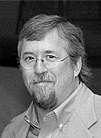Learning from those Being Taught
 Guest post courtesy of J. Carson Rounds, MD: President of the North Carolina Academy of Family Physicians Foundation
Guest post courtesy of J. Carson Rounds, MD: President of the North Carolina Academy of Family Physicians Foundation
It can be hard to teach messy real-world issues, but practitioners need to understand how these issues affect their patients and how to interact with, and ultimately improve, an exceedingly complex and fragmented system to provide good patient care.1
Guanajuato, Mexico is roughly 2000 miles from Wake Forest, NC. Modern aviation can get you from Guanajuato to Wake Forest in about 7 hours, if all goes well. If it doesn’t, it might take 16 hours, like it did for Will Martin. The original class of Family Medicine Scholars was selected late enough in 2010 that many, including Will, already had summer plans. We had to work around that schedule to fit in his time at my office. Will’s first day in our office was the day after he returned from Mexico.
A clearly tired Will was on time and ready to learn. I was struck by his dedication and enthusiasm despite his arduous journey the day before. He quickly assimilated into our team and spent the next four weeks learning from me and my patients. He also challenged and taught us. My work day became longer, but my patient care benefitted. I work hard to ensure my patients understand their diagnosis, what I believe we should do about it, and why it is important to do something. The addition of probing questions from a medical student forces me to maintain a diagnostic and therapeutic rigor that is threatened by the “messy real-world issues” I face every day.
Will’s time with us that summer went by quickly. The enthusiasm, dedication, and curiosity Will brought with him renewed those same feelings in me. Will built an easy rapport with our patients and prompted many of them to become prophets, predicting Will’s future success as a physician. When he returned last fall, he picked up where he’d left off, often getting to see people he’d met during the first rotation.
Teaching and mentoring are acts of hope. I teach because I believe in the future of Family Medicine and our ability to make a difference in the world. I teach because I am taught by my students every time. I teach because Will reminded me that even when my ‘journey’ in the fragmented and complex world of medicine doesn’t go as planned, I can choose to be a cheerful, curious, and enthusiastic partner with my patients as we build a 21st century medical home.
Learn more about the relationship between physician and student by watching the Inspired story “Welcome to the Family.”
1Molly Cooke, David M. Irby, William Sullivan, and Kenneth M. Ludmerer. “American Medical Education 100 Years after the Flexner Report.” New England Journal of Medicine 355.13 (2006): 1339-344
